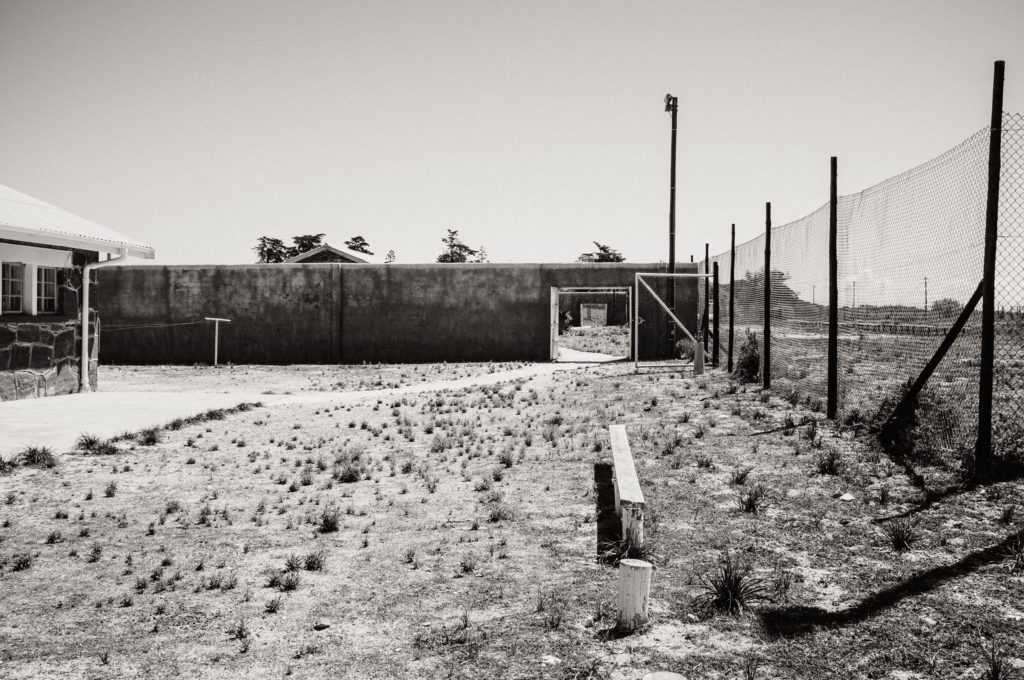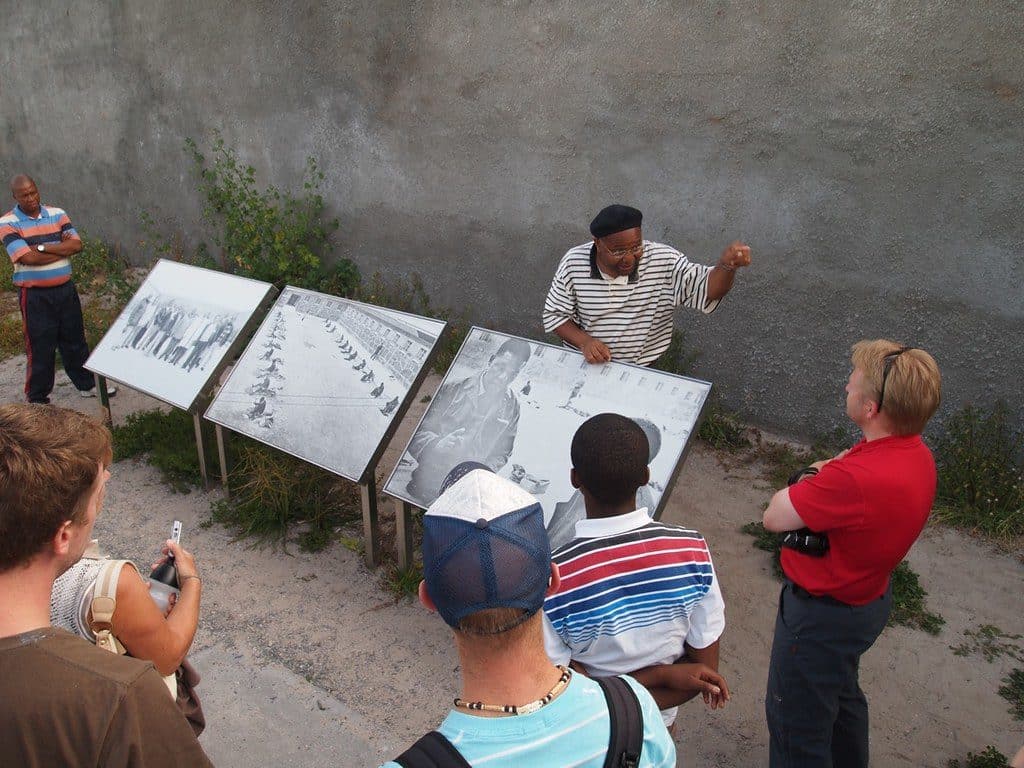The history of Robben Island is varied and full of human suffering. Miles outside of Cape Town, it has been a whaling station, leper colony, and even a political prison. After apartheid ended, the prison shut down. The island is now open to guests, many of whom journey there to pay respect to the late Nelson Mandela.

Early History of Robben Island
Robben Island was first colonized by the Dutch in 1652. Its name comes from the Dutch word for seal (robben). At first, Dutch Cape colonists used it as a place to stash livestock. The island offered better protection than the mainland from predators. The seals that lived on the island became a source of skins and oil for the fledgling colony.
Eventually, it became a place to send Dutch political dissidents. The first known prisoner was Autshumato. He led the Goringhaicona tribe in a war against the early Dutch Cape Colony.
British Invasion
After France invaded the Netherlands in 1795, the Patriot Party came to power. They reformed the country as the Batavian Republic. The new Batavian government allied with the French revolutionary government.
In response, the British conquered the Dutch Cape Colony in 1795 to prevent the French from seizing it. In 1805 the Cape was officially ceded to the British. The British continued to maintain the penal colony and also used the island as a whaling station for the next fourteen years.
Leper Colony and Prison
Beginning in 1845, lepers from Caledon transferred to Robben Island. At first, the quarantine was voluntary, but a law passed in 1892 made it mandatory to transfer lepers to the island. At one point over 500 lepers lived on Robben Island
For the second time in the history of Robben Island, the South African government converted it into a prison in 1961. During this period, it housed many members of the anti-apartheid movement. The most famous prisoner was Nelson Mandela who served part of his 27-year prison sentence there.

Modern History Of Robben Island
After the South African government repealed Apartheid in 1991, the prison closed. Five years later the medium-security prison closed as well closed. In 1999 Robben Island was designated a World Heritage Site.
Today, thousands of tourists make the journey from Cape Town every year to pay their respects to Nelson Mandela.
Further Reading
Surviving in the Apartheid Prison By Sedick Isaacs
- Tulip Mania – The Story of One of History’s Worst Financial Bubbles - May 15, 2022
- The True Story of Rapunzel - February 22, 2022
- The Blue Fugates: A Kentucky Family Born with Blue Skin - August 17, 2021
